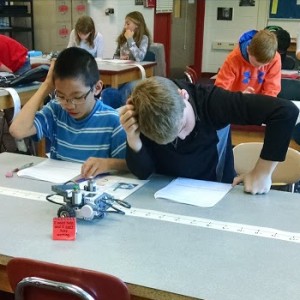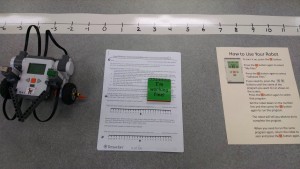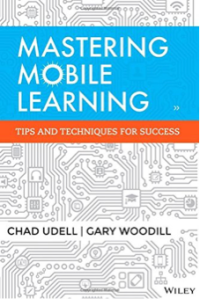I believe that computer coding should be started in primary school. There are a number of programming languages that have been developed specifically for young people. Here are a couple of languages Microsoft Small Basic and Scratch resources. The Microsoft site is amazing in the amount of teacher resource material it contains. Scratch, which was developed at MIT, is also amazing. Millions of projects, created by kids all over the world, enrich the learning community hosted there.
Title: Learn to Program with Small Basic: An Introduction to Programming with Games, Art, Science, and Math
English | ISBN: 1593277024 | 2016 | 304 pages
Small Basic is a free, beginner-friendly programming language created by Microsoft to  inspire kids to learn to program. Based on BASIC, which introduced programming to millions of first-time PC owners in the 1970s and 1980s, Small Basic is a modern language that makes coding simple and fun.
inspire kids to learn to program. Based on BASIC, which introduced programming to millions of first-time PC owners in the 1970s and 1980s, Small Basic is a modern language that makes coding simple and fun.
Learn to Program with Small Basic brings code to life and introduces you to the empowering world of programming. You’ll master the basics with simple activities like displaying messages and drawing colorful pictures, and work your way up to programming playable games! You’ll learn how to:
Store and manipulate data with variables
Process user input to make interactive programs
Use if/else statements to make decisions
Create loops to automate repetitive code
Break up long programs into bite-sized subroutines
Inside, you’ll find hands-on projects that will challenge and inspire you. You’ll command a turtle to draw shapes, program magical moving text, solve all kinds of math problems, help a knight slay a fearsome dragon, and more! Each chapter ends with extra practice examples so you can take your programming skills to the next level!
Title: Super Scratch Programming Adventure!: Learn to Program By Making Cool Games
Publisher: No Starch Press | 2012 | ISBN: 1593274092 | 160 pages

Scratch is the wildly popular educational programming language used by millions of first-time learners in classrooms, libraries, and homes worldwide. By dragging together colorful blocks of code, kids quickly learn computer programming concepts and make cool games and animations.
In Super Scratch Programming Adventure!, kids learn programming fundamentals as they make their very own playable video games. They will create projects inspired by classic arcade games that can be programmed (and played!) in an afternoon. The books patient, step-by-step explanations of the code and fun programming challenges will have kids creating their own games in no time.
This full-color comic book makes programming concepts like flow control, subroutines, and data types effortless to absorb. Packed with ideas for games that kids will be proud to show off, Super Scratch Programming Adventure! is the perfect first step for the budding programmer.
Here is a self directed video training title for teaching kids programming by building cellphone apps.
Title: APP programming for kids
MP4 | Video: AVC 1280×720 | Audio: AAC 44KHz 2ch | Duration: 2.5 Hours | 217 MB
Genre: eLearning | Language: English
Source: Udemy Training
 In this course you will learn the basics of programming and you will create your very own Flappy Bird type game.
In this course you will learn the basics of programming and you will create your very own Flappy Bird type game.
Join us in this amazing course were you will learn hot to start programming new and exciting games for mobile platforms. You do not need to have ANY previous experience as this course if for the new programmer.
At the end of this course, you will have a clear understanding on how basic statement like FOR, IF, WHILE, etc work and you will create your very own Flappy Bird type of game!!!
This course has been design for those who might want to venture into APP programming but might be afraid of not knowing or how to do things. The approach taken by this course will allow the student to get immersed into hole new world of possibilities. Remember, I am here to help you succeed, so if you have questions, please ask, I love to answer!!
Note: All the books presented in this blog. Include the original cover and review provided by the publisher. This information is used to accurately promote and show respect for these resources, the authors and the publishers.


 English | 2014 | ISBN: 0415656583, 0415656591 | pages: 160
English | 2014 | ISBN: 0415656583, 0415656591 | pages: 160 gns
gns Title: What Your First Grader Needs to Know (Revised and Updated): Fundamentals of a Good First-Grade Education
Title: What Your First Grader Needs to Know (Revised and Updated): Fundamentals of a Good First-Grade Education Give your child a smart start with the revised and updated
Give your child a smart start with the revised and updated Wired magazine (Sept. 2015) has addressed the questions in a very stimulating and controversial website called “
Wired magazine (Sept. 2015) has addressed the questions in a very stimulating and controversial website called “ Mathematics and LEGO robotics
Mathematics and LEGO robotics Summary: Students will be able to visualize the distance of a meter. Students will see the LEGO robot travel one meter. Then, students will change the wheel size and predict the distance the robot will travel. Discussions will follow about the predicted distance, how the students arrived at their distance, and how the students described the predicted distance. For example, 1 and ½ meters, or 150 cm – or ¾ of a meter, or 75cm. Students will write statements about additional predictions and measurements. Module includes code. Time frame: 1 class
Summary: Students will be able to visualize the distance of a meter. Students will see the LEGO robot travel one meter. Then, students will change the wheel size and predict the distance the robot will travel. Discussions will follow about the predicted distance, how the students arrived at their distance, and how the students described the predicted distance. For example, 1 and ½ meters, or 150 cm – or ¾ of a meter, or 75cm. Students will write statements about additional predictions and measurements. Module includes code. Time frame: 1 class Summary: Students will learn how to add and subtract integers using LEGO® MINDSTORMS® Robots and then extend their understanding to real-life applications. First, students will follow step-by-step instructions in a PowerPoint presentation to construct the robot. Then, students will use the robot to perform a number of operations by inputting the expression into the robot using touch sensors. Students will use the data of the robot’s motion to find patterns and make conjectures about addition and subtraction of integers. Students will generate the appropriate expression given particular robot movement. Students will make predictions about robot movement and the sum/difference given more complex problems. Finally, students will extend their understanding to solve real-life problems using addition and subtraction of integers. In addition to solving problems given to them, students will need to write a real-world story that includes a problem that they will solve by adding or subtracting integers. Module includes student packet, assessment rubrics, robot build, powerpoints and EV3 LME code. Time frame: one week
Summary: Students will learn how to add and subtract integers using LEGO® MINDSTORMS® Robots and then extend their understanding to real-life applications. First, students will follow step-by-step instructions in a PowerPoint presentation to construct the robot. Then, students will use the robot to perform a number of operations by inputting the expression into the robot using touch sensors. Students will use the data of the robot’s motion to find patterns and make conjectures about addition and subtraction of integers. Students will generate the appropriate expression given particular robot movement. Students will make predictions about robot movement and the sum/difference given more complex problems. Finally, students will extend their understanding to solve real-life problems using addition and subtraction of integers. In addition to solving problems given to them, students will need to write a real-world story that includes a problem that they will solve by adding or subtracting integers. Module includes student packet, assessment rubrics, robot build, powerpoints and EV3 LME code. Time frame: one week Summary: Using Lego Robots in the classroom, students will explore functions. Students will be presented with a challenge that will allow them to define the starting points of each robot to allow for them to finish at approximately the same time if they are traveling at various speeds. Students will define, evaluate and compare functions as well as use those functions to model relationships between quantities to complete the challenge. Module includes student activity sheets, robot build, and EV3 LME code. Time frame: 3-4 (75 min) blocks
Summary: Using Lego Robots in the classroom, students will explore functions. Students will be presented with a challenge that will allow them to define the starting points of each robot to allow for them to finish at approximately the same time if they are traveling at various speeds. Students will define, evaluate and compare functions as well as use those functions to model relationships between quantities to complete the challenge. Module includes student activity sheets, robot build, and EV3 LME code. Time frame: 3-4 (75 min) blocks
 Discover the strategies, tools, and technologies necessary for developing successful mobile learning programs
Discover the strategies, tools, and technologies necessary for developing successful mobile learning programs Create a more effective system for evaluating online faculty Evaluating Online Teaching is the first comprehensive book to outline strategies for effectively measuring the quality of online teaching, providing the tools and guidance that faculty members and administrators need. The authors address challenges that colleges and universities face in creating effective online teacher evaluations, including organizational structure, institutional governance, faculty and administrator attitudes, and possible budget constraints. Through the integration of case studies and theory, the text provides practical solutions geared to address challenges and foster effective, efficient evaluations of online teaching. Readers gain access to rubrics, forms, and worksheets that they can customize to fit the needs of their unique institutions. Evaluation methods designed for face–to–face classrooms, from student surveys to administrative observations, are often applied to the online teaching environment, leaving reviewers and instructors with an ill–fitted and incomplete analysis. Evaluating Online Teaching shows how strategies for evaluating online teaching differ from those used in traditional classrooms and vary as a function of the nature, purpose, and focus of the evaluation. This book guides faculty members and administrators in crafting an evaluation process specifically suited to online teaching and learning, for more accurate feedback and better results. The book concludes with an examination of strategies for fostering change across campus, as well as structures for creating a climate of assessment that includes online teaching as a component. Evaluating Online Teaching helps institutions rethink the evaluation process for online teaching, with the end goal of improving teaching and learning, student success, and institutional results.
Create a more effective system for evaluating online faculty Evaluating Online Teaching is the first comprehensive book to outline strategies for effectively measuring the quality of online teaching, providing the tools and guidance that faculty members and administrators need. The authors address challenges that colleges and universities face in creating effective online teacher evaluations, including organizational structure, institutional governance, faculty and administrator attitudes, and possible budget constraints. Through the integration of case studies and theory, the text provides practical solutions geared to address challenges and foster effective, efficient evaluations of online teaching. Readers gain access to rubrics, forms, and worksheets that they can customize to fit the needs of their unique institutions. Evaluation methods designed for face–to–face classrooms, from student surveys to administrative observations, are often applied to the online teaching environment, leaving reviewers and instructors with an ill–fitted and incomplete analysis. Evaluating Online Teaching shows how strategies for evaluating online teaching differ from those used in traditional classrooms and vary as a function of the nature, purpose, and focus of the evaluation. This book guides faculty members and administrators in crafting an evaluation process specifically suited to online teaching and learning, for more accurate feedback and better results. The book concludes with an examination of strategies for fostering change across campus, as well as structures for creating a climate of assessment that includes online teaching as a component. Evaluating Online Teaching helps institutions rethink the evaluation process for online teaching, with the end goal of improving teaching and learning, student success, and institutional results.
 Next Generation Assessment examines performance assessment as an alternative to the current high-stakes standardized testing system. This important resource provides a thorough analysis of the prospects and challenges of sustaining performance assessments on a large scale.
Next Generation Assessment examines performance assessment as an alternative to the current high-stakes standardized testing system. This important resource provides a thorough analysis of the prospects and challenges of sustaining performance assessments on a large scale.


